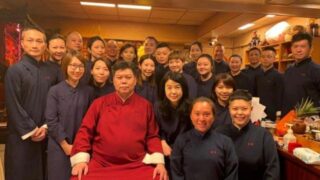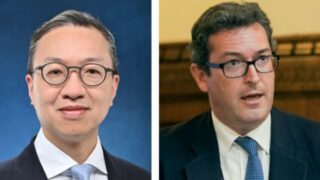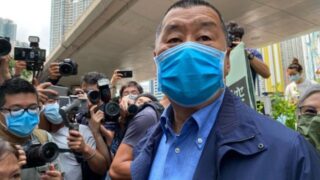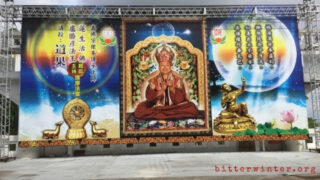Chinese authorities restrict mainlanders’ communication with the special administrative region while expanding influence on Hong Kong’s believers.
by Ye Jiajia
On May 28, Beijing overwhelmingly passed the State Security Law for Hong Kong, leaving the “one country, two systems” in the name only. The move also raises serious concerns about religious liberties in the semiautonomous region and their cooperation with believers on the mainland.
According to a 2014 survey by the Hong Kong Church Renewal Movement, more than 60% of Protestant churches in Hong Kong have organized exchanges with places of worship on the mainland at some point in the past three years: about 40% were visits, 28% involved religious teaching and training, and 23% included preaching.
To control and even sever these ties amid the pro-democracy protests last year, the CCP stepped up interventions into Hong Kong’s religious activities by restricting and controlling their contacts with the mainland. While believers in various provinces in China, especially those neighboring Hong Kong, were encouraged to exert their influence on Hong Kong believers to make them support the CCP leadership.
As per a document, issued in August last year by the Ethnic and Religious Affairs Bureau of Shenzhen city in Guangdong Province, believers and the clergy of state-run places of worship were encouraged to use the city’s geographical situation being close to Hong Kong and Macau to influence people of faith in the two special administrative regions. The decree, entitled Solicitation of Opinions on ‘Guiding Religious Groups to Serve Guangdong-Hongkong-Macao Greater Bay Area Co-construction,’ orders to utilize believers’ personal and religious contacts to work on “returning people’s hearts.” Meaning—persuade believers in Hong Kong and Macau to acknowledge CCP’s guidance and support its viewpoints. The indoctrination work should primarily be directed at infiltrating the “training of young representatives of religious groups.”
For years, the CCP has been working at influencing Hong Kong’s religious communities, in some cases succeeding in inducing churches and groups. In October last year, the Hong Kong Chinese Christian Churches Union, the largest and most representative Christian organization in the region, organized for some of its members a study trip to Beijing. The itinerary included visits to the United Front Work Department and the Two Chinese Christian Councils. Meetings and discussions, led by government officials, covered topics like China’s religious policies, traditional culture, “international situation and China’s foreign policy under the Sino-US trade war,” “aerospace science and technology, high-tech warfare, and national defense modernization.”


Meanwhile, the police summoned many people of faith on the mainland, even arrested some, amid Hong Kong’s pro-democracy protests. They were forbidden from traveling to the region, and some also had their Hong Kong-Macao travel passes confiscated.
In June last year, officials from the Religious Affairs Bureau in the northeastern province of Heilongjiang convened a conference on Hong Kong issues for the leaders of all state-run religious groups. The participants were told that control over Christian missionaries from Hong Kong on the mainland should be intensified because many believers took part in the pro-democracy demonstrations. Those who received Hong Kong missionaries without the Bureau’s approval would be deemed breaking the law. Officials at the conference demanded that all believers, who had friends or relatives visiting from Hong Kong, reported about such visits to their employers or churches, who will, in turn, notify the authorities.
The police in Ganzhou, a prefecture-level city in the southeastern province of Jiangxi, investigated the director and a preacher of a Sola Fide house church because the two went to Hong Kong for a religious meeting in April last year. They were demanded to write statements promising not to go to Hong Kong again. The church relocated after the inquiry to evade police harassment.
In July last year, the director of a house church in Guangdong’s Foshan city was denied a Hong Kong-Macao travel pass because of the pro-democracy protests.
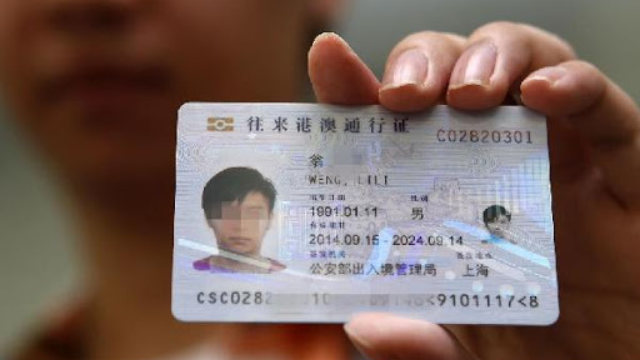

A group of house church members planned to go to Hong Kong for a religious gathering in October, but their Hong Kong-Macao travel passes were impounded. Two believers from the eastern province of Jiangsu were threatened by government officials who told them that those going to Hong Kong were opposing the Communist Party and would be designated as “anti-China elements.” If the believers insisted on going, all their welfare benefits would be canceled, and they may even be arrested and imprisoned, the officials threatened.
According to relatives of several members of The Church of Almighty God (CAG), last summer, the police carried out concentrated investigations and arrests against CAG members who had a Hong Kong-Macao travel pass or who had traveled to Hong Kong. Some of these CAG members remained under investigation since their visits to Hong Kong seven years ago. For some, this was the reason to flee their homes and live on the run. The household registration of the entire family of one the believers was frozen last year. As a result, no one in the family could apply for a residence permit, an ID card, or register a newborn, and do many other administrative tasks. All family members were prohibited from leaving the mainland.


